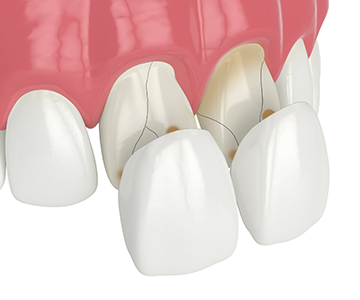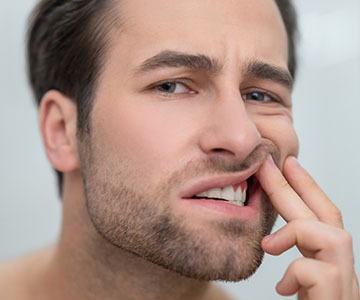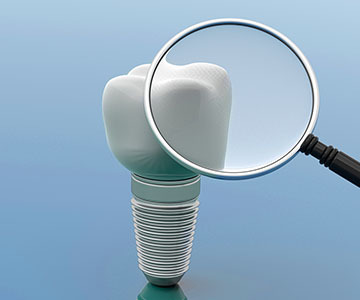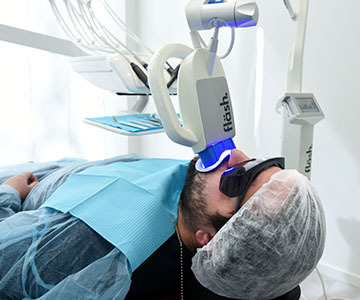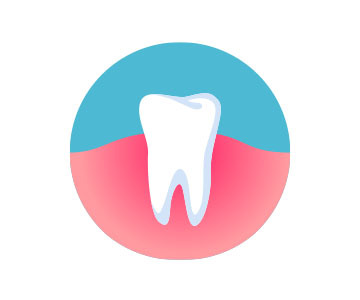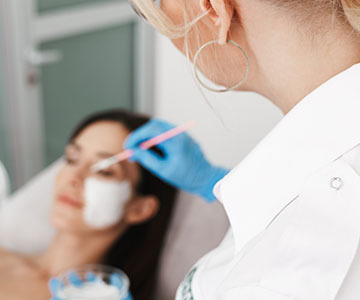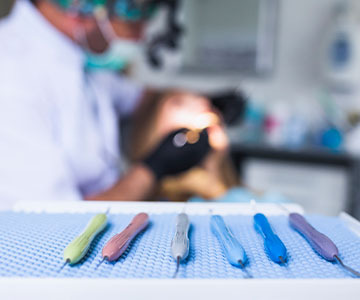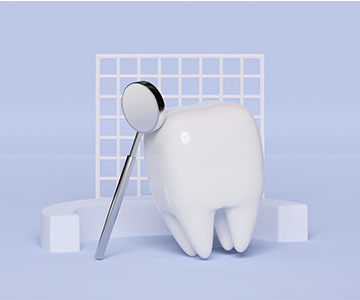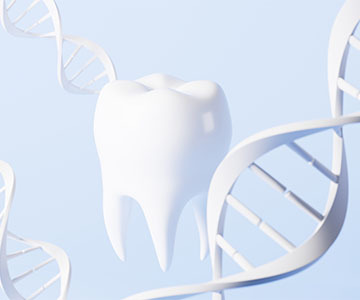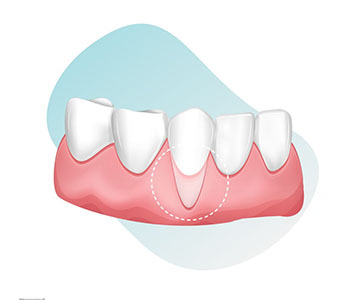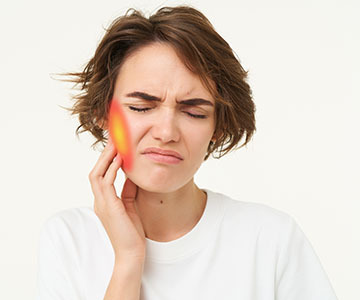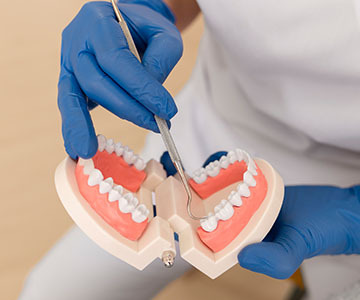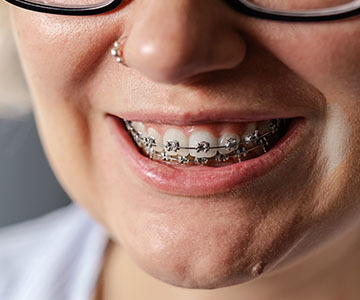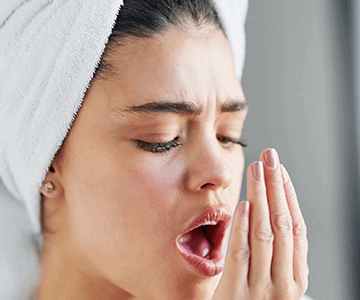
Bad Breath - Halitosis
14 January 2022
An unpleasant odor in the mouth, also known as halitosis , affects everyone at some point and is a widespread problem. Studies in some European countries have shown that 50% of adults have or had a bad breath. There are a number of ways to get rid of bad breath, such as chewing gum, mouthwashes, sprays, etc. However, all these products are not a way to fight the cause of the problem, but to temporarily stop the symptom.
Unpleasant odor varies depending on what causes the disease to provoke. A person with halitosis may not feel it at all or vice versa, it may be very annoying for both him and those around him. In addition to a bad smell, you may also notice a bad taste in your mouth. If the taste is due to an underlying condition and isn’t because of trapped food particles, it may not disappear — even if you brush your teeth and use mouthwash.
What causes breath odor?
Before talking about the unpleasant odor in the mouth , it is necessary to first understand the mechanism of its origin. The cause of the odor is bacterias inhabiting the oral cavity. Lots of bacteria live in the oral cavity, the humid environment is ideal for them. When food waste is added to heat and synovium, bacterias multiply, begin to break down the waste, and produce waste with an unpleasant odor.
Here are listed the reasons that may contribute to the development of halitosis:
- Leaving food waste between the teeth causes bacteria to multiply and produce an unpleasant odor as a result.
- Certain foods such as onions, garlic and spices.
- Tobacco causes bad breath too, in addition to increasing the likelihood of gum disease, which in turn causes halitosis.
- Bad oral hygiene - If a person does not brush their teeth properly and does not clean them with dental floss, food debris remains in the mouth and causes an unpleasant odor. Bacteria attach to the teeth as a colorless sticky plate, and if not removed in time, the gums may become irritated and inflamed - gingivitis and periodontitis may develop and the pockets between the teeth and gums can be filled with bacterial plugs. The surface of the tongue can also become a breeding ground for bacteria. In addition, food particles and bacteria may also get into the prosthesis, if it’s not cleaned regularly and does not fit perfectly into the oral cavity.
- Dry mouth - Saliva has a protective function in the oral cavity, it removes food debris and bacteria that give off an unpleasant odor. Dry mouth, the same as xerostomia, can also cause an unpleasant odor from the mouth. It is frequent in the morning, especially during sleep. Chronic dry mouth can also be caused by some medications and salivary gland disease.
- Oral Infections - An unpleasant odor may be caused by an infection invading wounds in the oral cavity as a result of surgical intervention.
- Diseases of the stomach, duodenum and bile ducts, such as gastritis, duodenitis, cholecystitis, gallstones, etc.
- Other problems of the ear, nose or throat - Infections and chronic inflammatory processes in the nose, sinuses and throat, which can lead to a sore mouth and also can cause an unpleasant odor.
- Other causes - some tumors, metabolic disorders may cause unpleasant odors, because these diseases cause the production of certain chemicals in the body.
How to prevent breath odor
You should brush your teeth twice a day (while taking care not to overbrush).Floss daily, making sure to get in between all of your teeth. Use antimicrobial mouthwash daily to kill bacteria. Brushing your tongue with a toothbrush or tongue scraper can also help remove bacteria.Staying hydrated can often help to eliminate or prevent breath odor. Drink water to wash away food particles and keep your mouth moist. If you smoke, quitting can also help keep your mouth moist and free of odor.
There are several routines that can help prevent breath odor:
- Clean your dentures, mouth guards, and retainers daily.
- Replace your old toothbrush with a new one every 3 months.
- Schedule a dental cleaning and examination every 6 months.
When should we consult a doctor?
Unpleasant odor in the oral cavity may be caused by improper hygiene, at this time the problem can be solved by frequent brushing of the teeth, using a special dental floss and drinking plenty of water. However, if the problem is not solved, it is better to consult a dentist. If the dentist finds a problem in the oral cavity, the unpleasant odor should disappear after its treatment, but if the doctor believes that the source of the problem is not related to oral health, in this case a family doctor or therapist should be consulted. Kharebava clinic is the best dental clinic Tbilisi.
What is veneering and what to know about this procedure.
Dental diseases that you should pay special attention to.
The main goal of our clinic is to create a confident smile.
Non-alternative treatment method for adentia
Modern dentistry offers patients various methods of teeth cleaning and whitening.
Environmental factors that have an affect on our oral health and teeth.
Periodontitis is the most common dental disease.
Development of aesthetic dentistry till the 21st century.
Dental problems that are especially relevant in certain age groups.
The dental problems that are asymptomatic in the initial stages.
Gum problems caused by genetics and ways to solve them.
Causes and first symptoms of gingival recession.
What is gnathology and when should we consult a gnathologist?
New year - new smile
Tips for healthy teeth.
Full range of prosthodontic services.
Increased sensitivity of the teeth
A step-by-step guide to adult braces.
Teeth and general health.

